Tolstoy, The Most Woke Anarchist Since Jesus
His deeply Christian take on slavery in our times
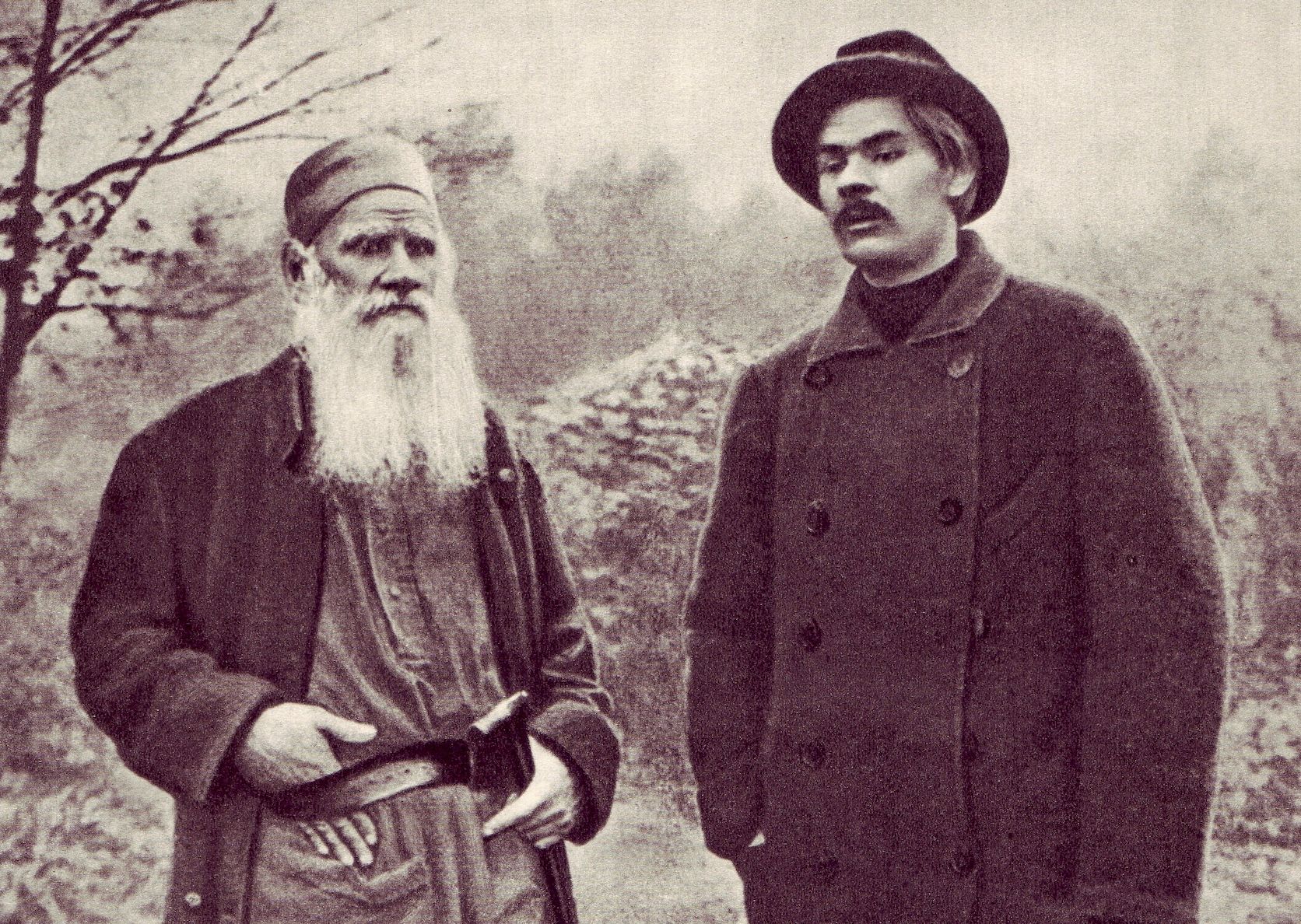
Leo Tolstoy is an amazing writer, known mostly for his epic War and Peace, but don't worry, The Slavery Of Our Times is only 90 pages long. It quickly and beautifully upends basic assumptions about economics, law, and the need for government at all. Tolstoy is the anarchist philosopher poet, trying to make peasants into philosopher kings.
Tolstoy starts the book visiting the horrors of then-modern capitalism. Men working 36 hour shifts at the train station, women giving away their children to work at the garment factory. He sees this suffering and asks why. Why must we live like this? What he sees is that these people live under wage slavery as real as chattel slavery, backed by lawyers and economists as false as priests, enforced by governments as vile as murderers.
Today, 120 years later, it feels like the same shit, different day. His books is stunningly, depressingly relevant to modern debates. We still tinker around the edges (like capitalism vs. socialism), but Tolstoy exhorts us to go deeper still. He harks back to the ideas of Christ, the Buddha, and Confucius, back even to the first thing God was recorded to tell man. Do not kill. This very simple commandment, applied to government, changes everything.
If you take violence out of government, the government cannot enforce laws. If the government can't enforce laws, wage slavery falls down. Without wage slavery, the people are free. This condition of freedom, where people live in voluntary, non-coercive institutions is properly called anarchism. As Noam Chomsky says, "anarchy as a social philosophy has never meant “chaos”—in fact, anarchists have typically believed in a highly organized society, just one that’s organized democratically from below."
The Slavery Of Our Times is one of the most important anarchist works, and it's not about chaos at all. It's about freedom, about love, and the message of the original anarchist, Jesus Christ.

Modern Slavery
The title of Tolstoy's book is The Slavery Of Our Times, which he defines as wage slavery, working yourself to death in order to live. 70-years ahead of his time, he identifies structural violence (ie grinding poverty) as violence in itself. The stunning thing about his analysis is that it applies as much to a cesspool cleaner in 1900 as to an Uber driver in 2021.
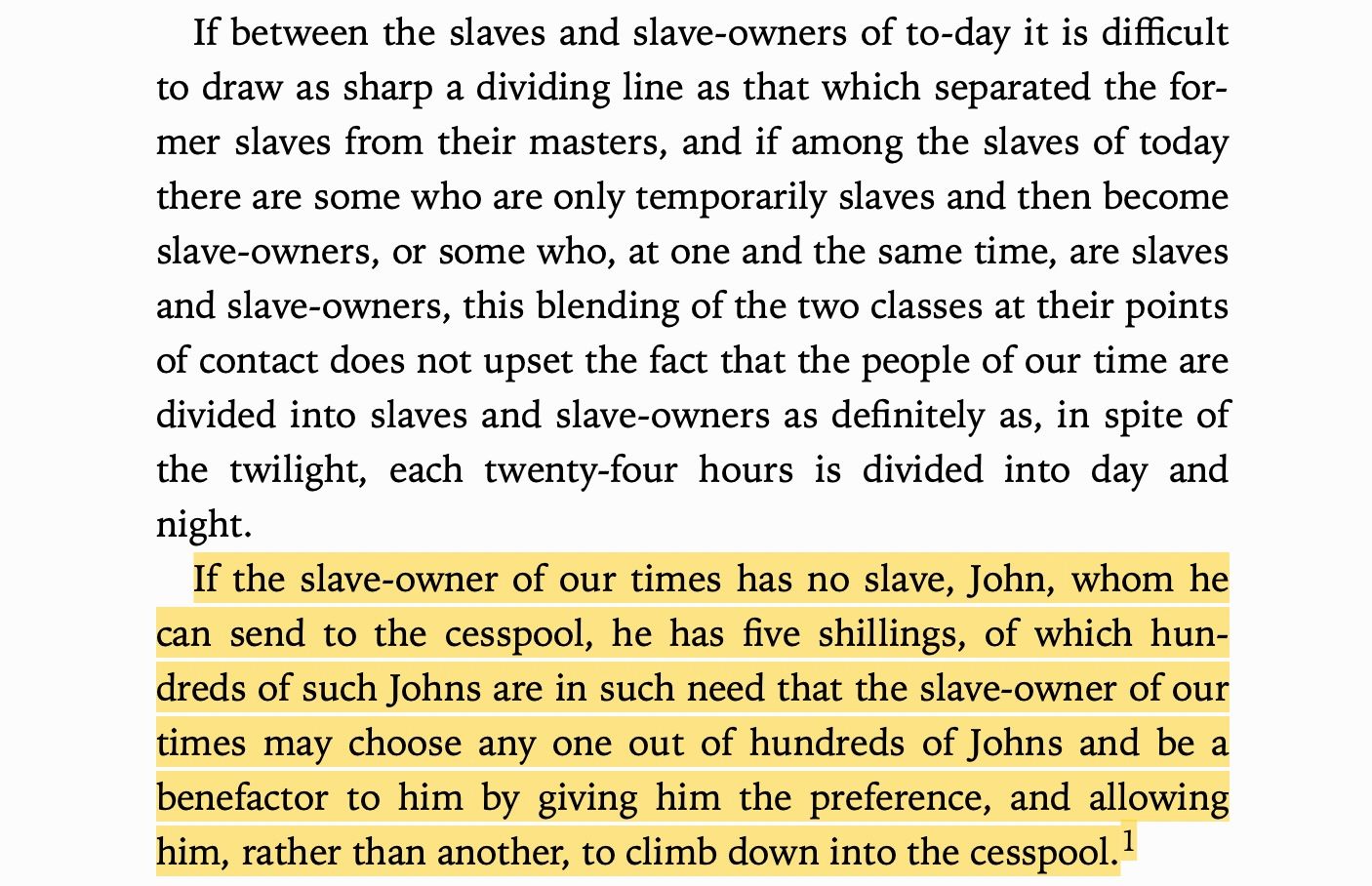
To him the idea that anyone should have to work for a living was repugnant, because of the obvious corrolary. If you do not work, you will die. That we dress this violence up in made-up economics or laws is no different from dressing up past oppression in the divine right of kings.
Just as people justified pre-modern slavery, Tolstoy says that we are blind to modern slavery today.
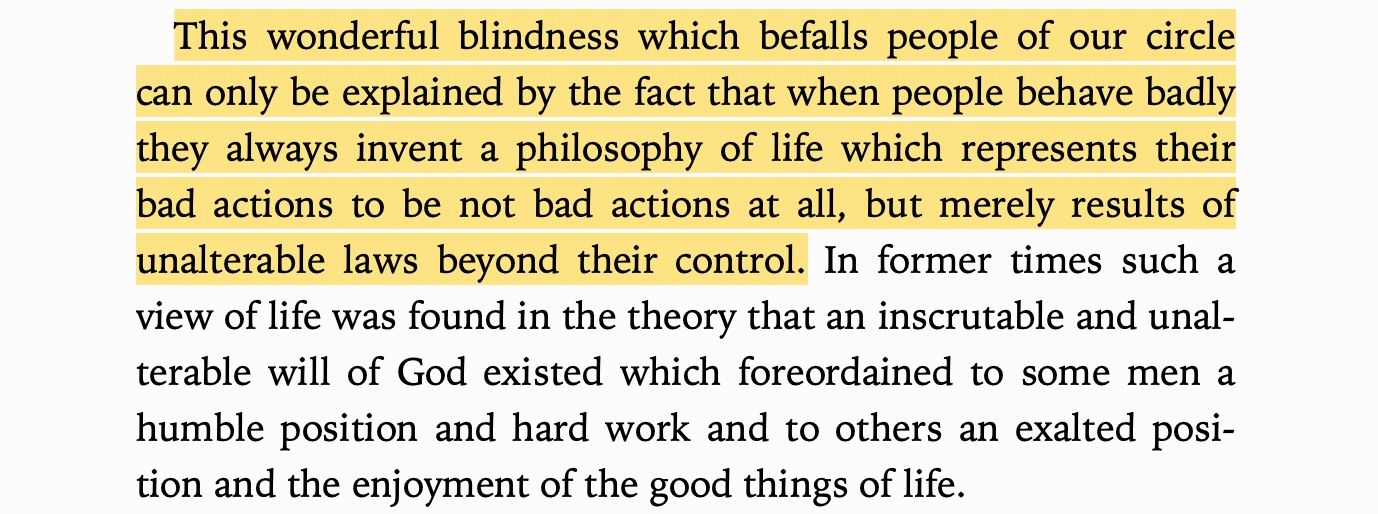
Today we worship money. Its priests—economists and CEOs—tell us complicated reasons why everything is in its place (with them at the top). But it's all literally made up and we could make up something different. It's no different than a priest reading entrails and saying that's why he gets to take your grain.
Economists cannot even predict the stock market any more than a priest could interpret the king's dreams, but we follow them with equal blindness. We follow because it lets us partake of the benefits of modern slavery without the guilt. In lieu of Ra told us so, we have 'it's just economics'. We are slavers, worshiping money, and we don't even build anything as interesting as pyramids. Just pyramid schemes.
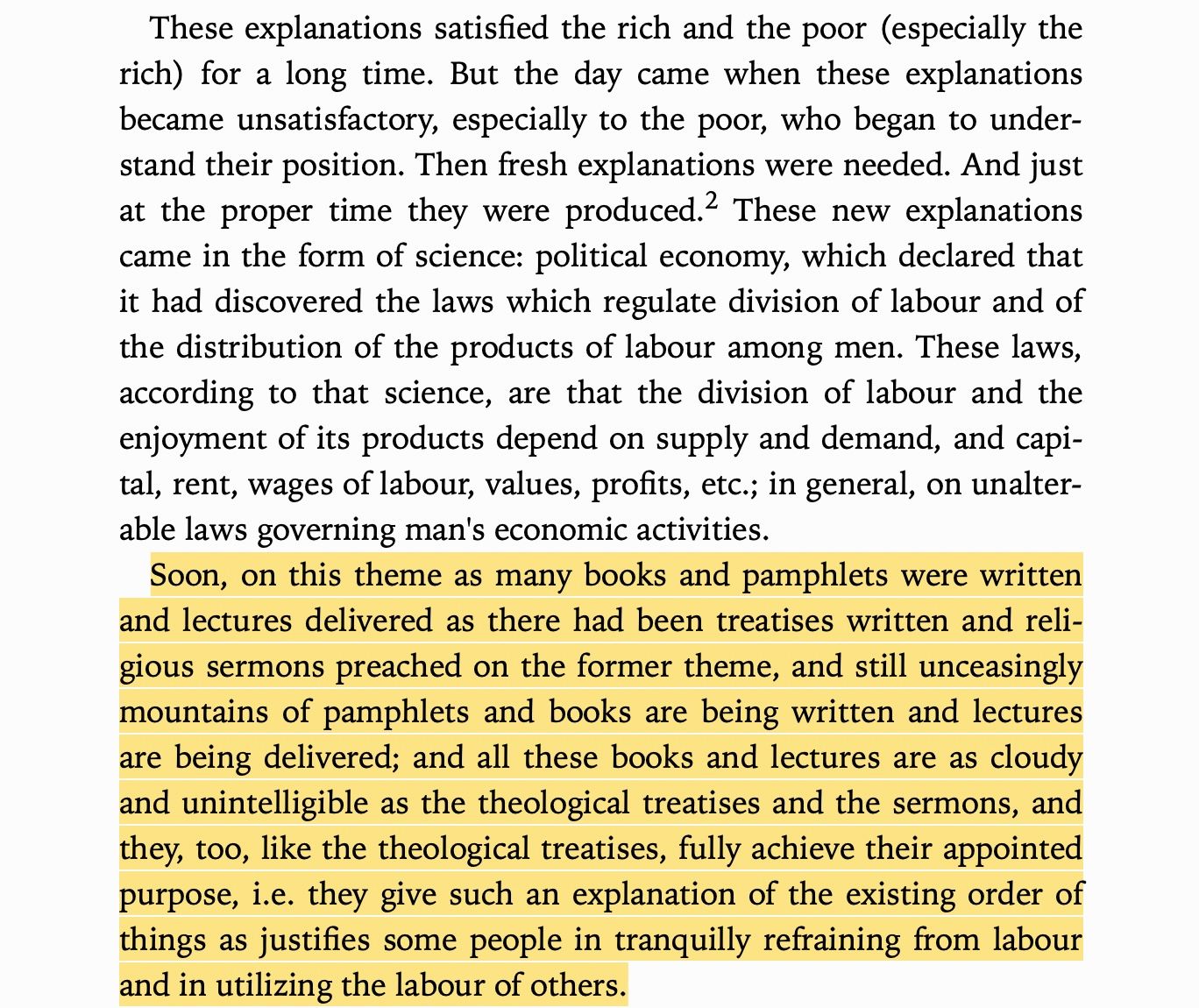
Tolstoy really unleashes some sick burns on economists. I hate economists with an inchoate ire, but he really finds the words. As he knew in 1900, economics is a pseudo-science. No other science will follow a false assumption (like rational actors) forever—it would be like chemistry starting from the wrong periodic table—but economics does. No other science is allowed to conduct experiments (like trickle-down economics) on entire human populations, killing millions, but economics can.
Even good economists (like Thomas Piketty or Branko Milanovic today) are still producing reams of data to point out something obvious to any poor person. That inequality exists, and is bad, duh. They're screaming out the ivory tower window, but never do they question tearing the damn thing down. Tolstoy has a sick burn for these guys as well:
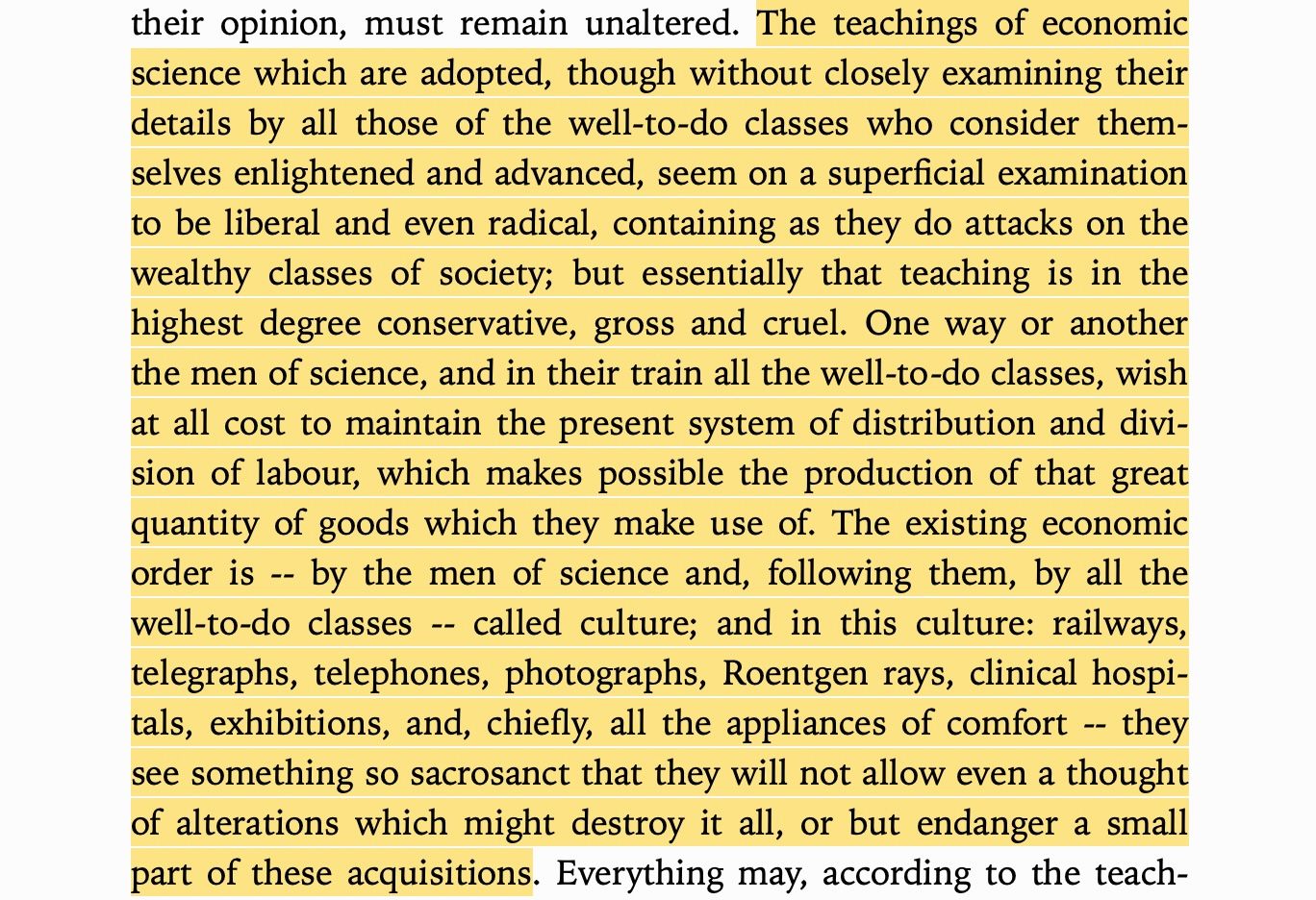
Hence someone like Milanovic reacts violently to the modernish idea of degrowth, roughly the idea that the global north should reduce it's ravenous consumption and meet the global south in the middle, rather than this cancerous growth forever. He says this is magical thinking because it threatens his own magical thinking. He measures and worships GDP and cannot see that it is also made up. For him a future where we destroy the whole Earth is more realistic than questioning the economic magic he has based his career on.
Tolstoy and others have actually been talking about the idea of degrowth for centuries, even millenia. There is an ancient Chinese idea of xiaokang shehui, which translates crudely to "moderately prosperous society". Bryan Van Nordern puts it more colorfully as "a chicken in every pot, but not a Porsche in every parking space". To Tolstoy, the idea that we can survive the climate ravages of ever-increasing GDP with more GDP would be like sobering up with vodka.

To him it is impossible to separate economic goods from the violence used to produce them and though he talked about the violence against the human spirit, it is violence against the environment as well.
As his translator and friend Aylward Maude says in the intro, degrowth is in many ways the main intention of Tolstoy's work. The idea that we must sacrifice material progress because it comes at the cost of our soul. Tolstoy was an anarchist, but they couched this as a deeply Christian idea as well. A commandment really. What does it profit a man to gain the world and lose his soul? As we are seeing in the 21st century, you ultimately lose both.
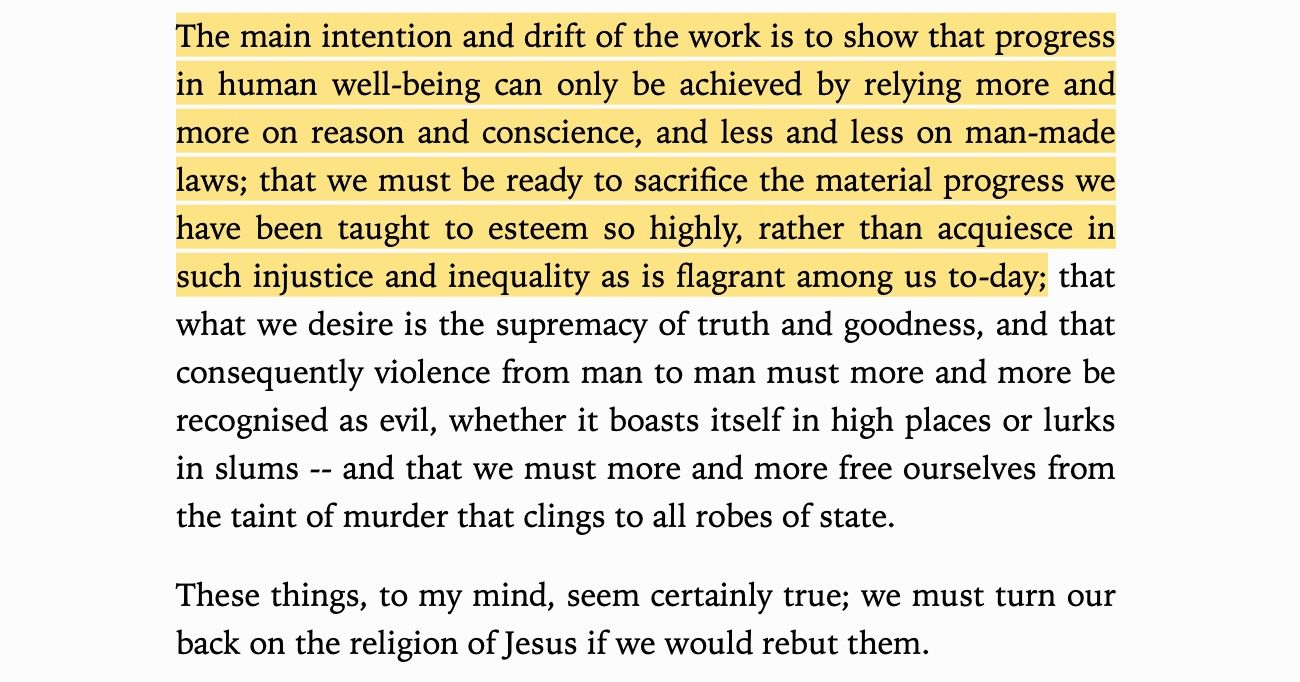
We have all this fancy economics but they can't really calculate a balance sheet. The earth hangs in the balance and all their measurements somehow miss this. Their GDP values Amazon the company at $1 trillion and the ancient Amazon rainforest at zero, unless you're burning it down. It's earth-devouring madness, and we call it just the way things are.
Tolstoy calls this a soul-devouring madness, he quotes John Ruskin saying that "it is a good and desirable thing, truly, to make many pins a day; but if we could only see with what crystal sand their points were polished—sand of human souls —we should think there might be some loss in it also." Of course this loss doesn't show up on any balance sheet. It just shows up in our untold violence against every species on Earth, including ourselves.
Now, lots of people do feel some guilt over this, and Tolstoy skewers our usual bleeding-heart reactions, asking to modify the earth-and-soul-devouring-machine slightly, but never to actually turn it around. He says that we try to improve working conditions, without changing the fundamental condition of work. We try the effects, without changing the cause.

As Tolstoy continually hammers away, we are pruning the branches and not touching the roots. Because we still want to eat the forbidden fruit. We want to take the fruit of other people's labor and nature, we just want to do it more politely. So we assuage our own guilt without actually improving things.
Today you can see this everywhere. White people go on "conscious" retreats to Guatemala while Guatemalans have their children stolen for going the other way. Companies tell us they 'give something back' with every purchase, ignoring what every purchase takes away. Most perniciously you can see it in the laundering of blood money we laud as philanthropy: as per Bill Gates enforcing vaccine apartheid during COVID-19.
What Tolstoy is arguing is that trying to fix this system within the system is impossible. It's a category error. It's as Martin Buber wrote, "One cannot in the nature of things expect a little tree that has been turned into a club to put forth leaves." Tolstoy's point is to put the club down. To abjure violence in all its forms, especially structural violence. And to understand that violence is the essential structure of the state.
This is of course radical and, to people like you or me—who enjoy the fruits of this bloody tree—repulsive. I like next-day delivery, I like my coffee. But it is folly to expect radical change without, well, radical change. We really want to get something without giving anything up. Tolstoy shows us how much we actually have to give, and how deeply this questions our assumptions about what's even right or possible. Let us start with the rule of law.
That's got to go.
The Rule Of Law Is Violence
It is common for campaigners for justice or human rights to appeal to existing laws, or ask for better ones. To Tolstoy, this is like an ant appealing to the boot, or trying to resole it. To him the very foundation of law is violence. The question he asks his simple. How are they ultimately enforced?

You know he's right. Everybody's all for the rule of law until they get arrested. We have all these fancy laws which break the golden rule. No one wants the law violently applied to them, yet violence is ultimately at the enforcing end of every law. Just happens that poor people get it and rich people get away. And we talk about 'rule of law', with all of our lawyer-priests and connections to help us get away. Tolstoy calls for doing away with the whole thing.
But this sounds crazy. Even the most radical campaigners call for different laws, different punishments. Not a complete absence of enforceable laws. And yet this is exactly what Tolstoy calls for. Here is the premise in the foreward from his friend and translator, Aylmer Maude:
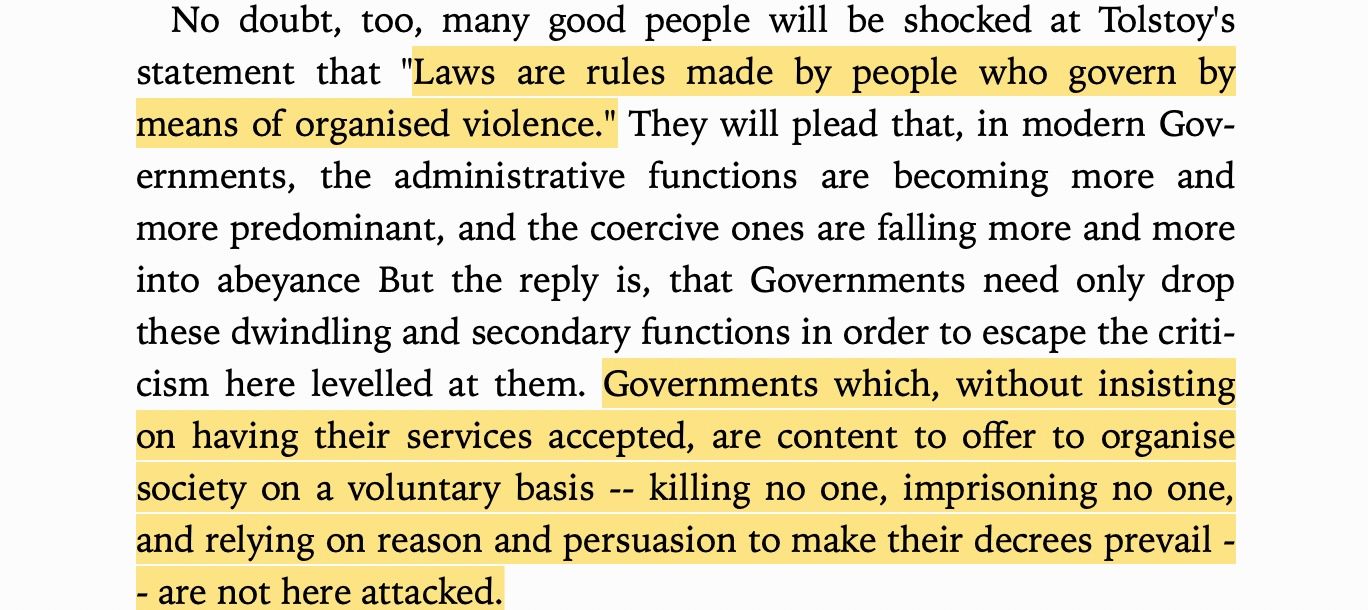
Hence here we get to the anarchist solution to this problem. Not the absence of institutions, but the absence of violence in the institutions. So people could decide to constitute a police force, but that police force could not arrest or kill. Governments could pass laws, but not enforce them. Thus you get to the crux of anarchism. Complete, terrifying, freedom.
Honestly, this sounds crazy, but it's important to recognize that most of our life is actually 'anarchy'. We don't use contracts to enforce relations between friends or family, we practice anarchism. We don't use violence to manage a church bake-sale, we practice anarchism. Most human relations are voluntary and non-violent. Anarchists are simply saying that all governance should be this way.
So... How?
If you've followed me this far I invite you to read The Slavery Of Modern Times yourself, it's no War and Peace, it's quite short and Tolstoy puts it all much better than I can (obvs). One criticism I'll add is in his solutions, though I'll give him a rebuttal. He rightly calls for the destruction of present oppressions without a clear idea of what replaces them. Indeed, the concrete actions he proposes sound like they'll end with a BitCoin pitch:
- A person should accept no government office or job.
- A person should not pay taxes.
- A person should not snitch, they should not appeal to government violence for anything.
Personally, I think Tolstoy goes amiss in trying to get into specifics at all. The point of anarchism is people power, so how would one person have the answers? I think modern anarchist Noam Chomsky is more correct to say he simply doesn't know.
I don’t think you have to know precisely how a future society would work: I think what you have to be able to do is spell out the principles you want to see such a society realize—and I think we can imagine many different ways in which a future society could realize them. Well, work to help people start trying them. "On Anarchism"
In terms of principles, I do think Tolstoy is quite clear. It helps to couch this as an inversion of ancient political philosophy.
Philosophers like Confucius talk about how, with a righteous king following the path of non-action (wu-wei), righteousness flows out of themselves, through their household, through their ministers, and eventually the whole kingdom. According to Confucius, an enlightened leader can simply take a ritual position facing south and rule by vibes. In Greek terms, this would be a philosopher king.
Tolstoy is talking about the same enlightenment, but for common people. He's talking about philosopher peasants, collectively guiding their own destiny. It's still a crazy idea, but no more crazy than the constantly disproven idea that rulers are somehow better than us. As Tolstoy says:
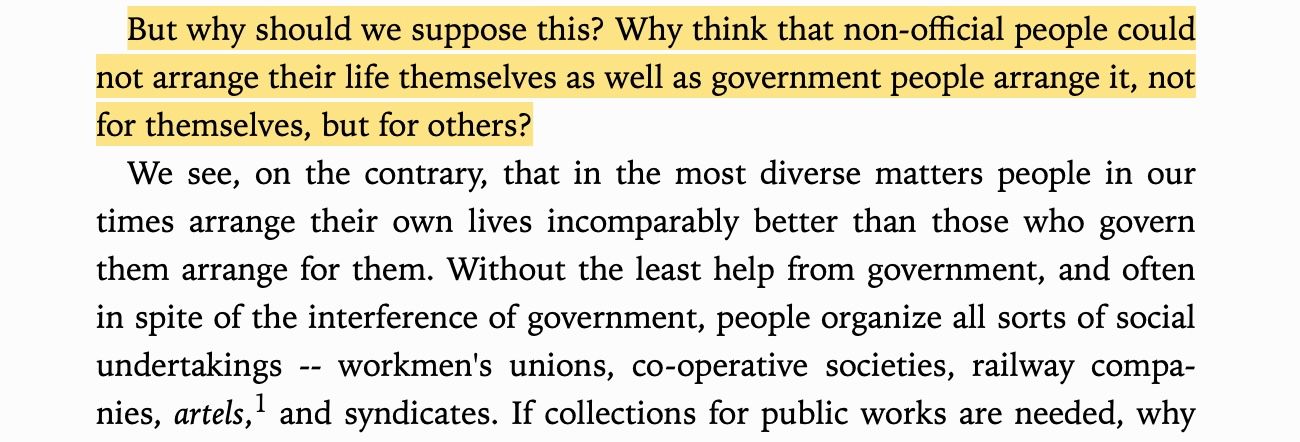
I guess you could say this is unrealistic, but how realistic is a corrupt ruler suddenly becoming enlightened? Confucius's idea was that someone was going to murder their way to the top of the Warring States and suddenly become super chill. I think he was right about the power of wu-wei but wrong to exclude it to Sons of Heaven. It could just as well be used by sons of the soil. Like him.
Tolstoy takes a similar idea to wu-wei and extends it from the ruler to the peasant. I think is very philosophically sound, though its consequences upend laws, markets, and everything else. It's also a very old idea, just applied to political philosophy. There are similar ideas in Buddhism and Hinduism and basically any ancient thought, but Tolstoy choses as his epigraph Jesus Christ. He's onto some eternal truth here, though people have been not wanting to hear it for thousands of years.
Hence I'll close with Tolstoy's invocation of his own chosen scripture, the inspiration for his work. An anarchist quoting gospel, I know, but Jesus was perhaps the original anarchist, in year zero of what we call modern times.
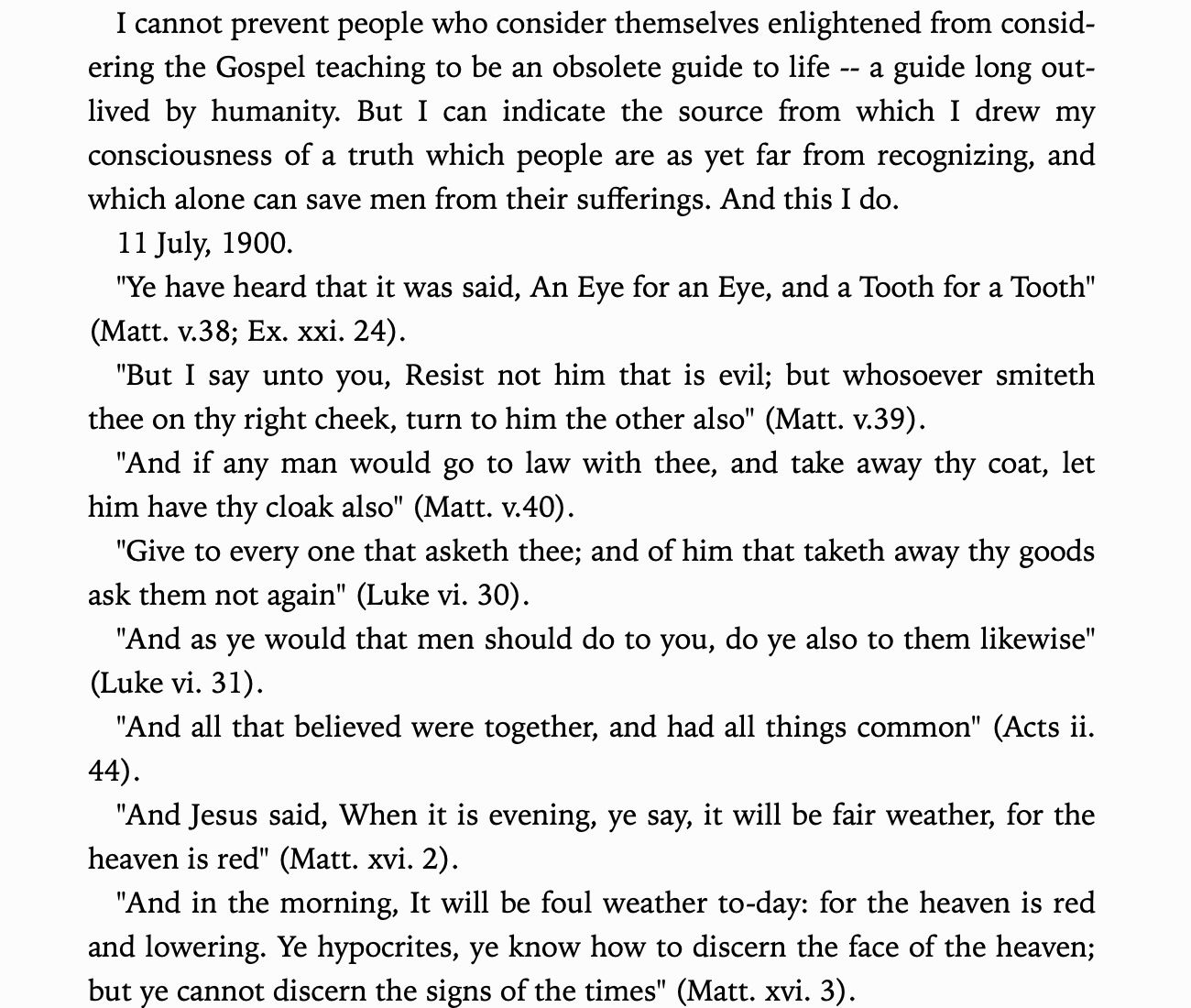
Tolstoy's entire book basically just listens to the Sermon on the Mount and draws out the logical conclusions. When he says Slavery In Our Times, that time is really the entire Christian Era, at least. The book is over a hundred years old, but the ideas are thousands. As long as this shit has been wrong, people have been telling us, and we've been sticking our fingers in our ears and babbling it away.
Tolstoy's modern exhortation is that we should simply apply the commandment do not kill to governments and see what happens. It seems like crazy, unpredictable things would happen, but the principle is right. No government has the right to violence against us, or in our name. The ramifications of this simple idea are massive, impossible, uncomfortable, but nonetheless true.
If you have somehow gotten through these 2,500 words, wow, read the whole book, it's 🔥. If you like this writing and you have money, I invite you to sign up for a $5 paid plan, which is the same as this, except I get money.